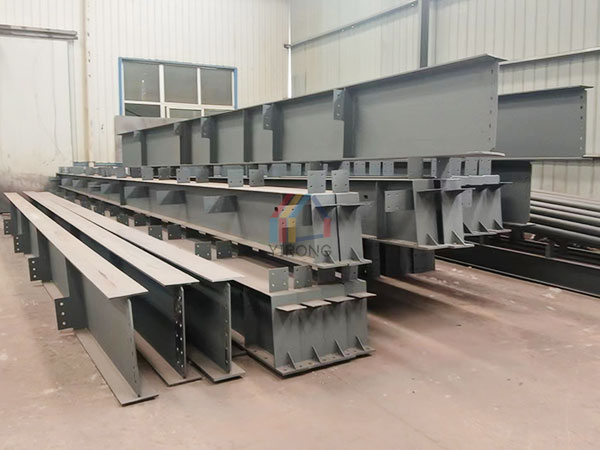What are some common quality standards and certifications for steel structures?
When it comes to quality standards and certifications for steel structures, several recognized organizations and codes set the benchmark for excellence and compliance. Here are some common quality standards and certifications applicable to steel structures:
American Institute of Steel Construction (AISC): AISC is a leading organization in North America that develops and maintains standards for the design, fabrication, and erection of structural steel. The AISC standards, such as the AISC 360 Specification for Structural Steel Buildings, ensure the quality and safety of steel structures in the United States.
Eurocodes (EN): Eurocodes are a set of European standards developed by the European Committee for Standardization (CEN) for the design of structures. Eurocodes cover a wide range of construction materials, including steel, and provide comprehensive guidelines for structural design, fabrication, and construction. Eurocode 3 (EN 1993) specifically addresses the design of steel structures.
International Organization for Standardization (ISO): ISO develops and publishes international standards for various industries, including steel structures. ISO 9001:2015 is a widely recognized standard for quality management systems that ensures organizations meet customer requirements and consistently deliver high-quality products and services.
British Standards (BS): The British Standards (BS) are a set of standards published by the British Standards Institution (BSI). BS 5950 provides guidelines for the design of structural steelwork in the United Kingdom, covering aspects such as loading, material properties, and design procedures.

Canadian Standards Association (CSA): The CSA is responsible for developing and maintaining standards for various industries in Canada. CSA S16 is the Canadian standard for the design of steel structures, outlining requirements for structural design, materials, fabrication, and welding.
International Building Code (IBC): The International Building Code is a comprehensive set of regulations and standards for building design and construction in the United States. The IBC includes provisions for steel structures and ensures compliance with safety, structural integrity, and performance requirements.
LEED Certification: Leadership in Energy and Environmental Design (LEED) is a globally recognized green building certification program. While not specific to steel structures, LEED certification promotes sustainable construction practices, including the use of environmentally friendly materials such as steel with high recycled content.
Factory Production Control (FPC) Certification: FPC certification ensures that steel fabrication companies have rigorous quality control measures in place during the manufacturing process. FPC certification verifies that the fabricator’s procedures and practices comply with relevant standards, ensuring consistent quality and traceability of steel components.
It’s important to note that the specific standards and certifications applicable to a project may vary depending on the country, region, and local regulations. When selecting a steel fabricator or contractor, ensure they adhere to the appropriate quality standards and hold relevant certifications to ensure the structural integrity and quality of your steel structure.












